Title : Development of Biosensor for Trypanosomosis (Surra) in livestock caused by Trypanosoma evansi
Abstract:
Surra is disease caused by a blood-flagellated protozoan, Trypanosoma evansi resulting in a major economic loss. The parasite can attack all livestock, wild animals, including humans (zoonosis). Various diagnostic methods have been developed; however they have limitations. Therefore, a minimum of two diagnostic procedures are required to confirm the disease. This research aimed to develop a prototype biosensor for detecting antibodies against T. evansi in livestock, which could be used as a diagnostic instrument for Surra management in the field. This sensor technique was based on protein isolated from T. evansi isolates from the Indonesian Research Center for Veterinary Sience Culture Collection. Additionally, the protein was characterized to ascertain the T. evansi protein concentration obtained using ELISA. Proteins were immobilized by a covalent immobilization procedure that involved the use of EDC/NHS as an intermediary between the protein and the sensor's carbon working electrode surface during a maximum immersion time of 2 hours to 1 day. The sensor was then examined with positive and negative serum using differential pulse voltammetry with the following parameters: potential range -0.5 – +0.5 V, 10 mV potential step, and 25 mV/s scan rate. Due to the sample's limited number of electron fluxes, each serum sample will be supplemented with a redox couple system, [Fe(CN)6]3-/[Fe(CN)6]4- 25 mM. The results demonstrated that the developed Surra biosensor was capable of significantly recognizing T. evansi antibodies at dilutions of 4-64 times. The protein concentration necessary for biosensor construction was tuned to be approximately 0.04 mg/ml. According to slope observations, positive serum samples often have slope areas between 0.5 and 09, and negative serum samples have slope areas between 0.1 and 0.2. The repeatability of the sensor also demonstrates considerable results, with the three T.evansi sensors exhibiting nearly identical response trends. The study concludes that protein-based biosensors may be used to identify surra in livestock.



